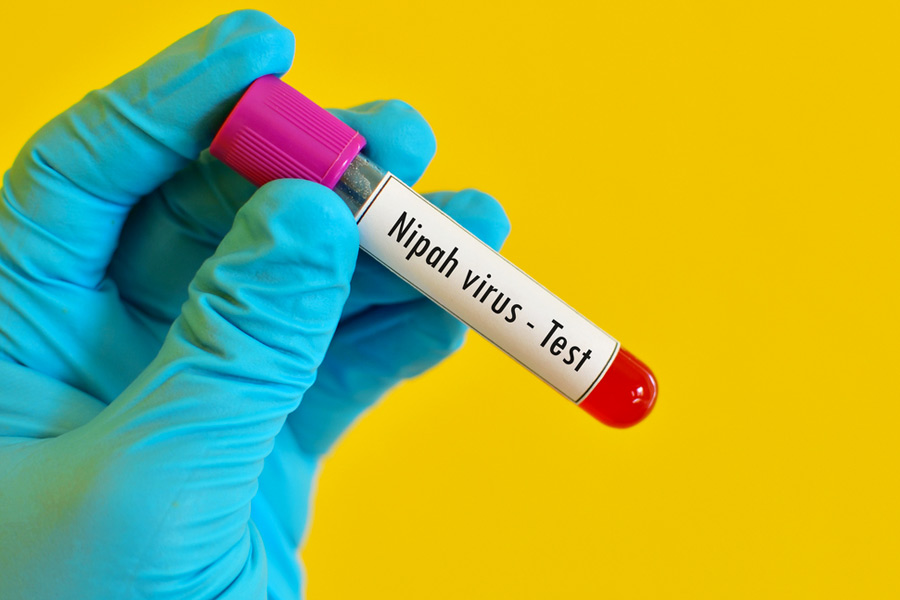
New Delhi, Nov. 5: When young executive Nikhil Jain, then 23, was left feeling "cheated" after an advertisement had spurred him to buy a fairness cream, he decided he wouldn't take it lying down like "so many millions".
Three years on, an unfair trade practices suit moved by Nikhil through his law student brother Paras - who was then 20 - has got a district consumer court in Delhi to impose a Rs 15-lakh fine on skin and healthcare giant Emami.
Under the November 3 judgment, Emami must also withdraw advertisements of its Fair and Handsome cream, the top-selling fairness cream for men in India that promises a fair complexion in four weeks. The ad that Jain saw featured actor Shah Rukh Khan.
"I used it for a month but nothing happened," the Mumbai-based Nikhil, now 26, told The Telegraph today. "I was surprised that although so many millions use these creams without results, none thinks of taking the companies to court. Paras and I did it to make sure that other people don't suffer like me."
Nikhil did not seek damages - he just asked for the litigation costs and was awarded Rs 10,000. The punitive damages of Rs 15 lakh will go to the consumer welfare fund of the state consumer commission, Delhi.
Whether the cream had or had not turned Nikhil fairer was not an issue in the court because the company maintained its product was meant only to improve skin health and quality. The court, therefore, found the ad for the cream guilty of "misrepresentation to the public".
"It uses the word ' gorapan' in advertisement No. 1, which means 'fair complexion'. In advertisement No. 2 it gives out a promise that the use of the product for a period of four weeks will ensure a fair complexion," the court said.
"This is in direct contrast with the defence taken by the OP (Emami) wherein it has claimed that the use of the product improves the health and quality of skin by providing protection and nourishment to the facial and neck skin which are more exposed to the vagaries of nature: sunlight, dust, wind, etc."
It added: "No attempt has been made on behalf of OP to show and justify the advertisements. We are therefore of the view that the advertisements... make misrepresentation to the public at large.... It therefore amounts to an unfair trade practice."
A spokesperson for Emami confirmed that the company had received a copy of the judgment yesterday but refused to comment further on the case. Emami can now appeal the judgment in the National Consumer Forum.
Emami, the first entrant into the domestic fairness market for men, dominates the Rs 385-crore industry. Hindustan Unilever's Fair and Lovely Max Fairness comes a distant second to Fair and Handsome.
Garnier, Vaseline and Nivea too have fairness and whitening products on offer for men. The celebs endorsing these products include Hrithik Roshan, Shahid Kapoor and John Abraham.
Paras, still a student of Amity Law School, told the court the case was in the public interest - "to protect other men so that unfair practices in the name of fairness can be stopped".
"While the cream didn't damage my brother's skin, it had a psychological effect. The company is playing with the emotions of so many people who want to look and feel better," said Paras, who claims never to have used the cream himself.
Fairness creams have been a controversial subject. Last year, the Food and Drug Administration had cracked down on a skin cream brand after allegations that it contained steroids that could not be sold without prescriptions and were capable of serious side-effects.
The advertising industry's self-regulatory body has prohibited fairness cream ads from showing darker-complexioned people as unhappy or disadvantaged or belonging to any particular socio-economic class, ethnicity or community.
Skin specialists say the "constitutive skin colour" is determined by cells called melanocytes that cannot be changed through any cream.
"What can change is really the tan, which is the extra production of melanin (the pigment produced by melanocytes) as a response to exposure to the sun," said Shyam Verma, a dermatologist in Vadodara and a member of the Indian Association of Dermatologists task force that has examined issues relating to fairness creams.
Verma said that skin colour can be quantitatively measured through scientific instruments. "We can today reliably and objectively measure skin reflectance with devices such as spectrophotometers and colorimeters."
Nikhil still wants a fairer skin but now uses only "natural remedies" and sunscreen.










